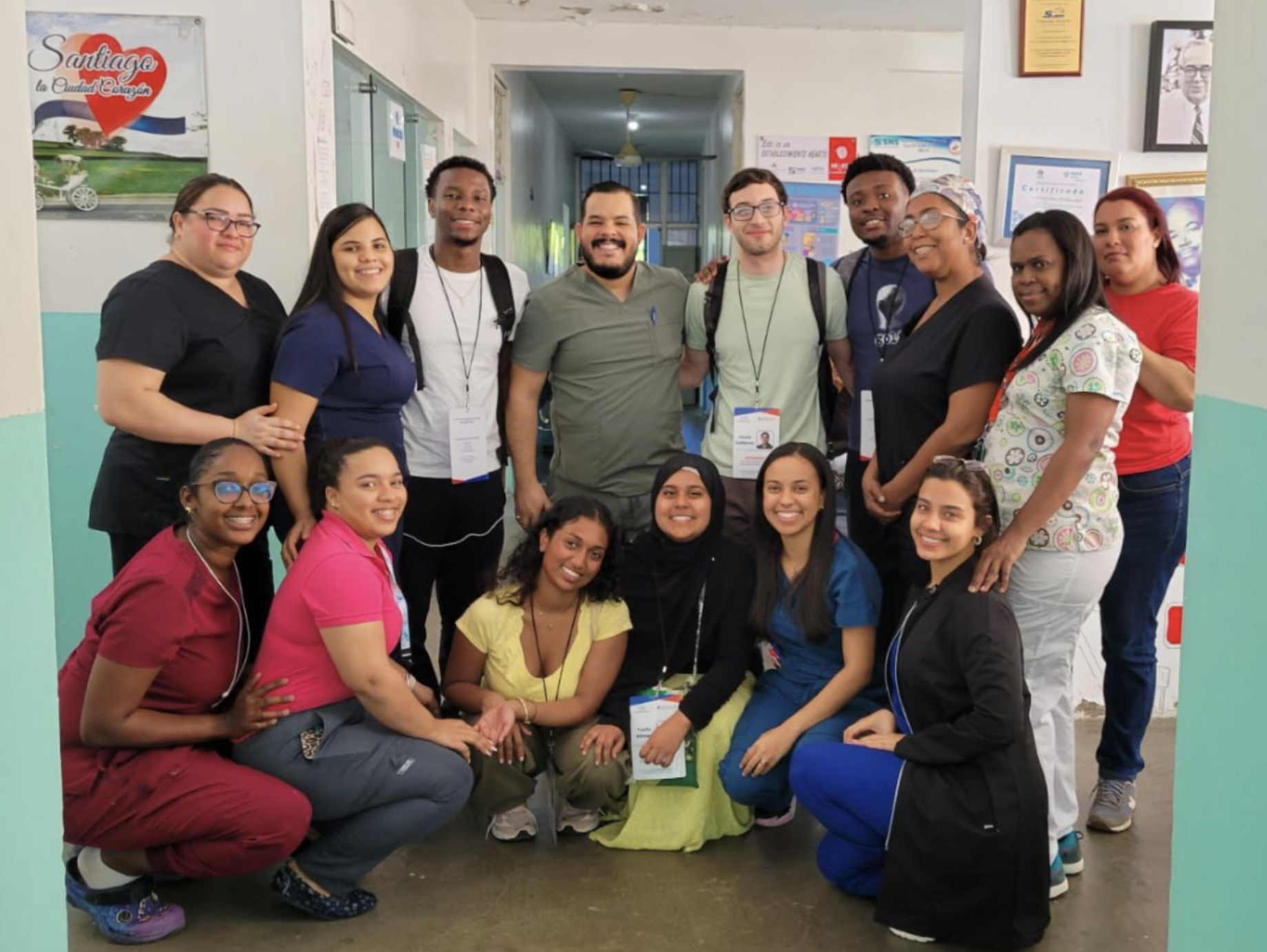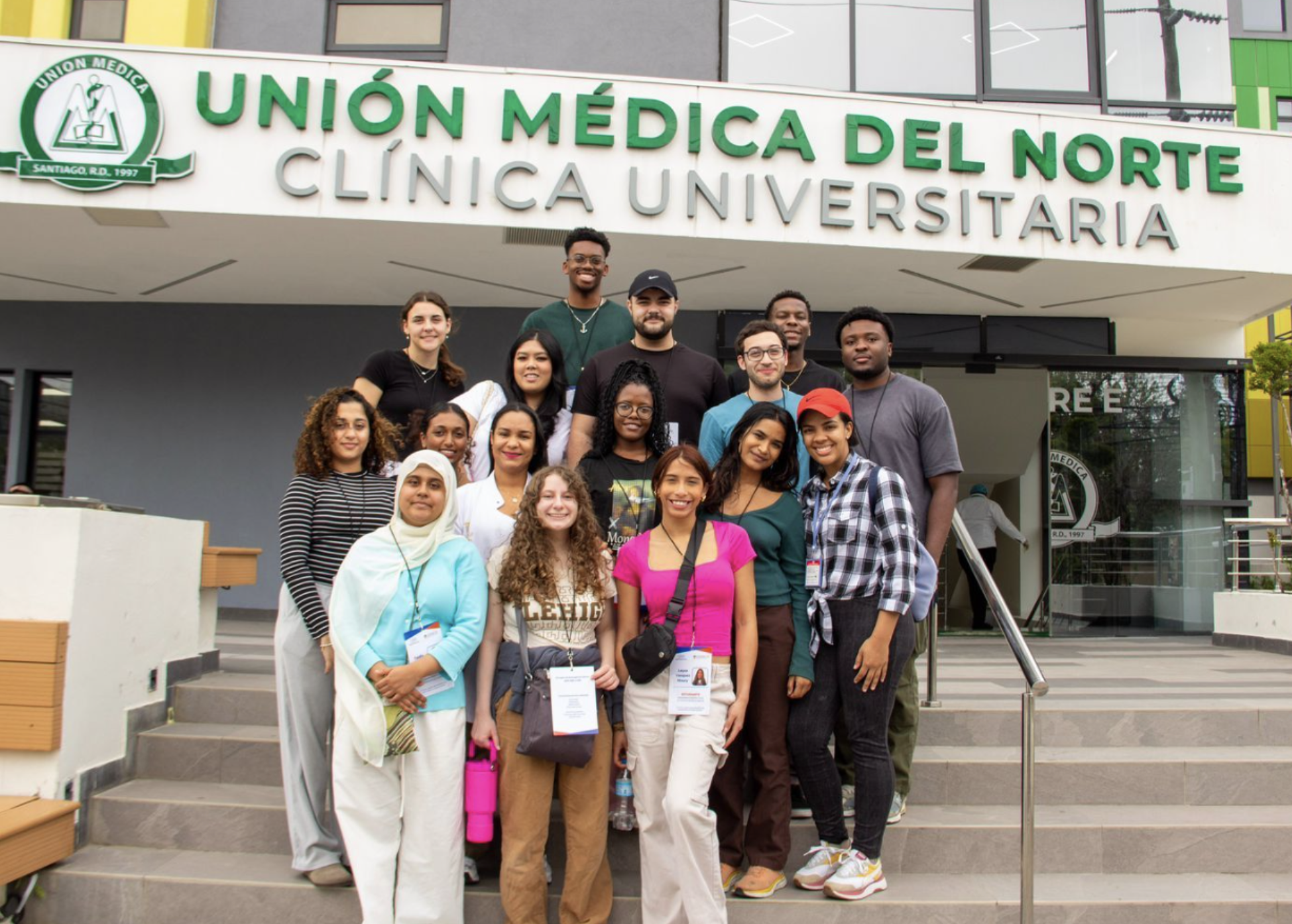A multidisciplinary approach of cultural immersion, shadowing healthcare providers, and classroom learning helped Lehigh students understand the social determinants of health in the Dominican Republic
Julie Wright ‘26, a community health major, spent 16 days in the Dominican Republic in January learning about the local health system, visiting public and private healthcare facilities, and exploring the city of Santiago de los Caballeros with her host mom.

The experience came with many firsts for her — it was one of her first times traveling internationally, her first time going through customs and her first time staying with a host family. It also brought more unexpected firsts, like learning to take an Uber when she didn’t speak the native language.
But what these firsts and the overall experience showed her more than anything, she said, is that she can do hard things and that a global context is important.
Wright was one of 15 Lehigh University students who participated in this year’s Lehigh in the Dominican Republic study abroad program. From Jan. 2 to 18, the cohort utilized a multidisciplinary approach that included classroom learning, site visits and cultural immersion to understand the role of social determinants of health on an individual and community level.
“My brain was in constant observation mode of just absorbing everything that was going on around me, which was awesome,” Wright said.
After first learning about the program, Wright began conducting research and meeting with the Office of Fellowship Advising (OFA) to decide if it was the right fit for her. She said she officially applied in September 2024, something she said was made possible for her by earning a Gilman Scholarship.
Tasfia Ahmad ‘27 also participated in the program in January. She said she first learned about the program through a friend who had participated in a previous year.
As a student planning to study cognitive science and health, medicine, and society, Ahmad said studying abroad for an entire semester was not an option for her, as many of her classes are only offered during certain semesters. But Lehigh in the Dominican Republic offered her a chance to immerse herself in a new place and subject.
“I wasn’t someone super interested in medicine,” Ahmad said, “But I do like the idea of public health. The program gave me confidence to try something new.”
Like Wright, Ahmad said the program pushed her outside her comfort zone at times — her prior international travel was limited, and the Dominican Republic was unfamiliar to her. But as she spent more time in Santiago, she said she began to embrace what the program offered.

Ahmad also stayed with a host family. After saying goodbye to them in the morning, her day started at around 8 a.m., when she’d meet the rest of the members of the program to take a bus to a clinic. There, she said, they would shadow doctors, which she described as intense yet insightful.
Then, Ahmad said, the students would grab lunch before heading to class for the afternoon. The classes focused on reflecting on the clinical experiences and linking them to the broader context of social determinants of health.
Ahmad said her time at the clinic was eye-opening, because it showed her how healthcare systems in the Dominican Republic interact with the everyday lives of citizens there.
“One of the things that really struck me was how much of the healthcare system is about access,” Ahmad said. “At the clinics, people don’t always have the same access to medication, to care, or even to information. And that plays such a big role in their health outcomes. It really made me think about how different things are in the U.S. and how we still have a lot of work to do to make healthcare equitable.”
Beyond the clinic and classes, Ahmad and Wright’s days were filled with visits to local sites and activities, like museum tours, classes and baseball games.
“I got to try so many new things,” Wright said. “The best part for me was just being out in the community and observing everything that was happening and taking notes of what was similar to the U.S., what was different, what I thought about it, what I liked, what I didn’t like, what it meant, all of that stuff.”
Katy Rene, Assistant Director of Study Abroad at Lehigh and the advisor for this program, said Lehigh in the Dominican Republic was born from a growing interest in health-related opportunities.
She also said since 2020, with a pause in program offerings in 2021 and 2022 due to the COVID pandemic, 70 Lehigh students have had the opportunity to participate in the program and apply their learning to their future endeavors.
“Six or seven years ago, Lehigh was seeing an increased interest in study abroad programs related to health,” Rene said. “We looked to our longstanding partner, CIEE, to collaborate on a customized program in which students gain a comparative perspective on health care systems and analyze social determinants of health in the Dominican Republic and the Caribbean region.”
Both Ahmad and Wright emphasized the importance of future healthcare professionals understanding the multifaceted nature of the field.
“It’s not just about learning how to treat illness — it’s about understanding how the system works, what’s affecting people, and how you can help make a difference in a way that’s both meaningful and sustainable,” Wright said.
She also said her time in the Dominican Republic reaffirmed her passion for community health and showed her global perspectives are vital to understanding and addressing health disparities.
For Ahmad, her experience with the program changed the way she thinks about and approaches health and society.
“I thought I knew what health was about,” she said. “But I’ve learned there’s so much more to it than just the physical aspects. It’s all about access, education, and understanding the broader context.”